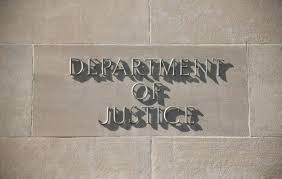FCPA Enforcement Ramping Up Against Private Equity and Hedge Funds (Part III)
 The Och-Ziff settlement has now set the stage for the Justice Department and the SEC to focus its enforcement eye on the private equity and hedge fund industry. The Och-Ziff action was initiated in response to the SEC’s industry inquiry launched in 2011. The SEC issued inquiry letters to approximately 10 separate private equity/hedge funds, and investment banks. The results of these inquiries are unknown and may have formed the basis for other enforcement actions, including JP Morgan’s Princeling investigation.
The Och-Ziff settlement has now set the stage for the Justice Department and the SEC to focus its enforcement eye on the private equity and hedge fund industry. The Och-Ziff action was initiated in response to the SEC’s industry inquiry launched in 2011. The SEC issued inquiry letters to approximately 10 separate private equity/hedge funds, and investment banks. The results of these inquiries are unknown and may have formed the basis for other enforcement actions, including JP Morgan’s Princeling investigation.
At a minimum, the Och-Ziff action sets important standards and precedent for additional enforcement actions and establishes important compliance guidelines. For private equity firms and hedge funds, it is time to re-examine their compliance programs against the Och-Ziff enforcement action.
Private equity and hedge funds have to identify potential risks in their international operations. As always, the key is to examine foreign government touch points – one key area illustrated in the Och-Ziff’s interactions with the Libyan Investment Authority is foreign sovereign wealth funds. Under the well-established definition of a “foreign official,” officers and employees at a sovereign wealth funds fall within the definition.
Private equity and hedge funds directly engage sovereign wealth funds seeking investment dollars, and rely on third party placement agents, as in Och-Ziff’s use of an agent in Libya, to seek investment dollars. Whether direct or indirect through a third party, private equity and hedge funds are at risk in these interactions. Placement agents can seek exorbitant fees or compensation schemes to funnel bribes to foreign sovereign wealth funds.
Competition for sovereign wealth funds is robust and bribery can occur in a variety of forms – the ongoing Princeling investigation underscores that benefits to relatives and children of foreign sovereign wealth fund officers can fall within the FCPA prohibition.
Private equity and hedge fund risks extend into other areas through ownership interests in related companies, joint ventures and other types of investment entities. Och-Ziff demonstrated the variety of ownership/equity interests and transactions that can raise real and significant corruption risks.
Private equity funds often maintain a mix of portfolio companies, each of which may raise significant corruption risks. Private equity owners, however, are not into ownership of a portfolio company for the long-term but often want to redesign or organize the company and usually sell part or all of the originally acquired company. In doing so, private equity owners are rarely focused on FCPA compliance along the way. A portfolio company rarely has a robust compliance program (if any at all).
Aside from the traditional portfolio companies, private equity and hedge funds may create funds to invest in foreign companies operating in targeted markets. The funds themselves may invest by purchasing joint venture interests, partnerships and other forms of common ownership. In addition, these potential ownership interests may be contingent or initiated by debt funding with rights of conversion into equity interests.
In these contexts, as demonstrated by Och-Ziff, these arrangements can raise real and significant risks that require careful due diligence of potential partners and investment entities, as well as transactions monitoring. Given the variety of forms of ownership and potential contingent transactions, private equity and hedge funds have to confirm the beneficial ownership of the parties involved, the justification for the expenditures, and the recipients of all payments. This examination requires a careful description and understanding of complex transactions, along with the potential risks in each portion of the transaction. Once identified, the private equity and hedge fund has to weigh the risks for the transaction and employ risk mitigation strategies to protect the company from corruption risks.
 In this particular area, compliance has to play an active and continuing role in the investment transactions that raise FCPA risks. No longer can the compliance officer sit on the sideline, wait for the approval process to be initiated and give the transaction a green light or suffer significant blowback from the business side. Instead, the compliance team has to be involved in early negotiations and deal considerations to inform the participants of compliance requirements, due diligence investigations, careful breakdown of the transaction and remedial steps needed to mitigate risks.
In this particular area, compliance has to play an active and continuing role in the investment transactions that raise FCPA risks. No longer can the compliance officer sit on the sideline, wait for the approval process to be initiated and give the transaction a green light or suffer significant blowback from the business side. Instead, the compliance team has to be involved in early negotiations and deal considerations to inform the participants of compliance requirements, due diligence investigations, careful breakdown of the transaction and remedial steps needed to mitigate risks.
Private equity and hedge funds have to enhance their compliance functions to take on new and important risks. Given the enforcement environment, compliance is already under the gun and will need even more support to focus on corruption risks.
















3 Responses
[…] Read Full Article: FCPA Enforcement Ramping Up Against Private Equity and Hedge Funds (Part III) – Corruption, Cr… […]
[…] Read Full Article: FCPA Enforcement Ramping Up Against Private Equity and Hedge Funds (Part III) – Corruption, Cr… […]
[…] Read Full Article: FCPA Enforcement Ramping Up Against Private Equity and Hedge Funds (Part III) – Corruption, Cr… […]